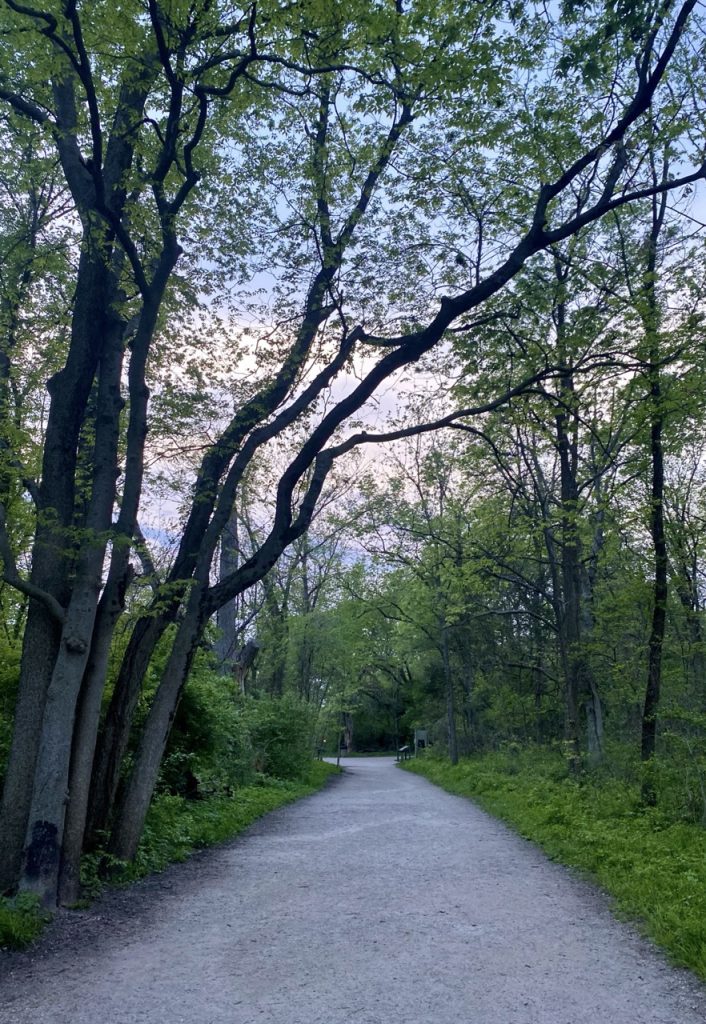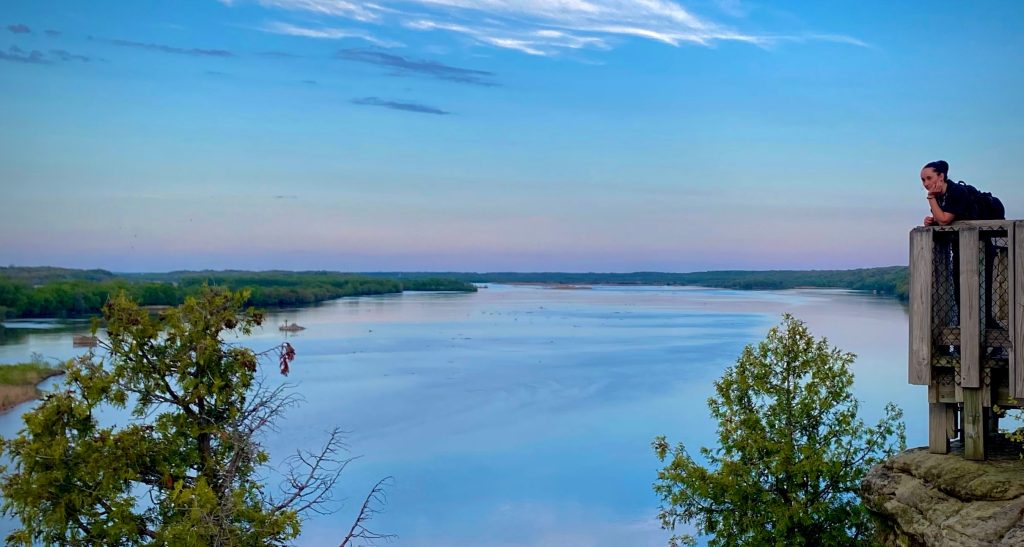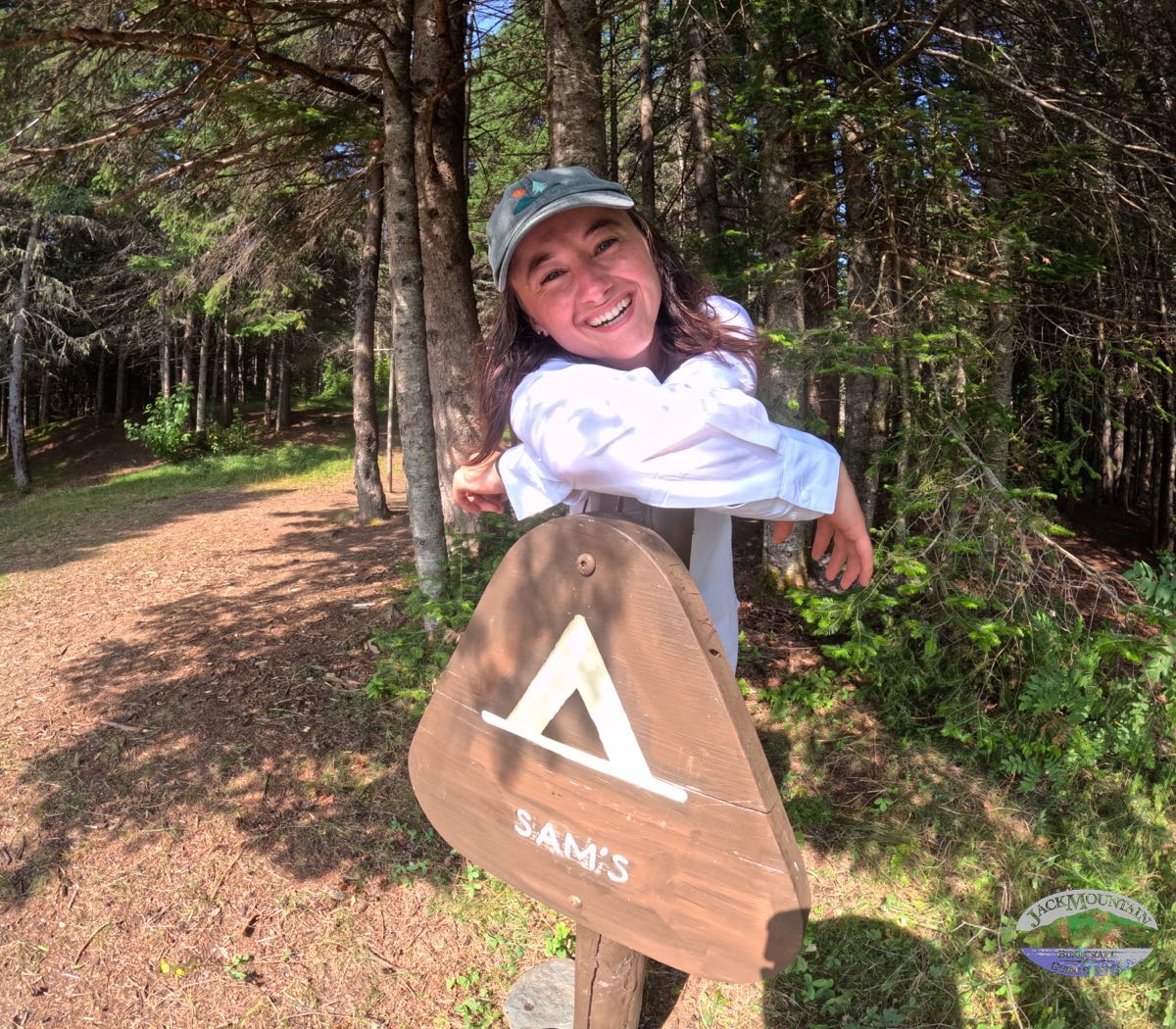
The six months I spent in the woods of northern Maine at Jack Mountain Bushcraft School, were immensely transformative—not only in terms of learning practical wilderness skills but also in terms of the emotional growth that occurred for me. Before I embarked on my journey to Maine, I faced a difficult period in my life that significantly impacted my emotional development.
Just before I left Oregon, I received the news that three very important people in my life had passed away, including my grandmother and two dear family friends, all within a short period of time. I also made the difficult decision to end a long-term relationship, as my partner and I agreed that attempting long distance while I was away would be too challenging. On top of these emotional losses, I had to say goodbye to my dog for the time I was away, who had been a constant companion for the last five years. As I drove across the country toward Maine, I received another call: my grandfather was nearing death. I turned my car around in eastern Ohio and drove straight to Michigan, hoping to see him before he passed. Unfortunately, I arrived just 10 minutes too late. After spending the night with family and attending a small memorial, I continued my journey to Jack Mountain, hopeful that a new chapter awaited me.
For the previous two years I had been planning this trip to Maine to attend the Expedition Instructor (XI) | 6-Month Residential Wilderness Immersion Program. I was inspired by a three month road trip I took at the beginning of the covid era to dive more deeply into my studies of wilderness survival and bushcraft skills. I had learned so much about myself and the ways I intended to exist in the world, but felt I was lacking the hard skills to embark on all of the adventures I was seeking. During my time on the road I slept most nights in a hammock deep in the wilderness and rarely interacted with other people. Since then I have been yearning for another experience similar and I was motivated to push myself to new limits in terms of my resilience and self sufficiency. I discovered this course taught at Jack Mountain Bushcraft School in the fall of 2022 and immediately reached out to sign myself up. It was the longest, and potentially most challenging version I could find of the type of course that I was looking for, an opportunity I could not pass up.
Arriving in Maine, I was met with unfamiliar faces, the promise of a new lifestyle, and an immense workload. I was eager to dive in, but I quickly realized that the weight of my grief still lingered. There was so much to learn and so many tasks to adapt to that I didn’t allow myself time to process my emotions. For the first few months, the distractions of the new experience—learning bushcraft skills, adjusting to the routine, and acclimating to the group dynamics—kept me moving forward. But eventually, everything I had put aside caught up with me.
I found myself in a profound state of isolation. Surrounded by the wilderness, I realized that I had no one close by to share my grief with—no friends or family who knew the people I had lost. The community at Jack Mountain was made up of ex-military or hardened outdoorsmen, with whom I hadn’t yet formed the emotional connections that would allow me to express what I was going through. This forced me to confront my internal experiences in new ways. There was no longer the comfort of long conversations with friends or a partner; I had to learn to process my grief on my own, to develop emotional resilience, and to keep up with the demanding nature of the program while navigating the complexity of my inner world.
The emotional turmoil intensified when Milla, the only other female in my course, left. Her departure triggered a deep fear of loneliness, reminding me of the losses I had recently faced. Though there were days when the emotional weight felt overwhelming, I also learned to channel that intensity. The day Milla left, for example, I used the intensity of that emotional energy to successfully make my first bow drill fire—a victory that felt huge in that moment. It was a turning point, where I realized I could transform emotional difficulty into strength.

This emotional growth was challenging, but it was necessary. It taught me how to process grief in solitude and find inner strength when external support felt distant or uncomfortable. I became more self-reliant and learned to embrace discomfort as part of navigating major life transitions. Through this process, I grew emotionally stronger and more capable of handling adversity.
Over time, I also developed a deeper appreciation for the people who support me, both near and far. The isolation of the wilderness made me reflect on how much I valued my connections to family and friends. It gave me perspective on how important these relationships are and how much I had taken them for granted. It also helped me recognize and deeply appreciate the new connections I was forming at Jack Mountain.
Challenge after challenge arose as I progressed through my training at Jack Mountain. The daily workload was physically and mentally exhausting, but the moments that affected me most were those that were completely out of my control. I received news of yet another family member experiencing potentially severe health complications. Their lack of social support in navigating the complex issues at hand put me in the position of feeling all too responsible for their wellbeing: a weight I was unequipped to bear, especially with the intensity of my own feelings of isolation.
As I continued to face challenges, I found a sense of resilience that went beyond the physical tasks we were learning. It became clear that my emotional growth was just as important as the practical skills I was gaining. It wasn’t just about how well I could use a knife or build a shelter—it was about how I could navigate my internal landscape and adapt to difficult situations, how I could listen to myself and respond with care, even when everything felt out of my control.
The experience taught me how to persevere for the sake of the group, even when I was emotionally or physically drained. The work at Jack Mountain demanded not only individual discipline but also responsibility to the group, whether that meant gathering firewood, emptying outhouse buckets, or managing camp to protect ourselves and the surrounding wildlife. These tasks needed to be done, regardless of how I felt. There were times when my grief or exhaustion made it hard to find motivation, but I learned that my contributions were vital to the well-being of the group. These tasks, though sometimes unpleasant, were part of a larger commitment to the collective, and I found purpose in them, I understood that these tasks weren’t just for me—they were for all of us. They kept us safe, and that was more important than any personal discomfort I might have been experiencing. The work that felt heavy often brought the greatest lessons in resilience and emotional strength.
In particularly tough moments, I relied on a simple mantra: “I am unphasable.” It became my anchor, helping me stay grounded and focused on the present. The mantra wasn’t about suppressing my feelings; it was about acknowledging them without allowing them to derail me. I would cry, but I would also continue with the tasks at hand. I would feel sad, but I would still participate in group activities and contribute to the community. I learned that emotional complexity didn’t mean I couldn’t move forward—it meant I could do so with grace and awareness.
My time at Jack Mountain also deepened my connection to the earth. As I learned to live sustainably and respectfully in the wilderness, I also learned to slow down, listen, and become more attuned to the natural rhythms of life. This connection to the land became part of my healing process. Simple, grounding practices like gathering wood for a fire, cooking over an open flame, and moving through the landscape became meditative acts that allowed me to heal in ways words couldn’t express. The raw beauty of nature reminded me that life, like nature itself, is cyclical—there are periods of growth and loss, and both are essential.
I did what I could to create small sacred moments for myself. I found stability in habits such as waking up with the sun to do yoga in the field before the belligerent hoard of biting insects came out for the day. I made a point to take little moments to stop and appreciate the graceful and intricate dance between the trees the wind kept me present. The early mornings waking up in my tent to the orchestra of birds singing and the gentle breeze frolicking through the trees taught me to start each day with a clear and open mind. And so many moments of laughter with the other students and instructors filled my soul deeply and reminded me that all is well and the healing I was craving was already occurring.
“It was not in the fight that I found my strength. It was in the surrender.”
~ Author Unknown
New posts every Sunday! Check back next week for more wilderness and wellness tips, skills, and stories. Follow along on Instagram or Facebook to stay updated!
